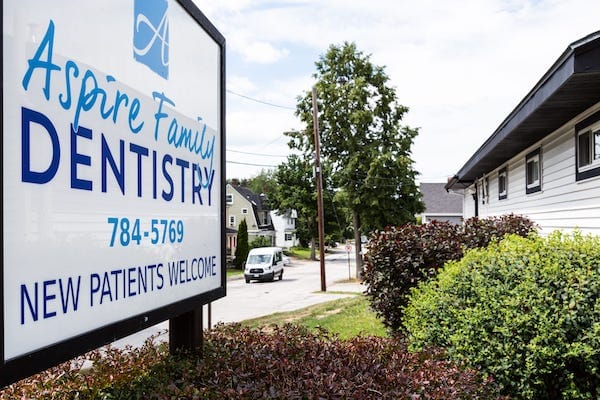Teeth grinding is a fairly common dental issue. In fact many parents can even hear their toddlers grinding their teeth. There are often sounds of clicking or grinding as the teeth press against each other. Even without seeing or hearing teeth grinding, your child might still be doing it. Teeth grinding can often lead to headaches and jaw soreness.
What Is Bruxism?
In the dental world we refer to teeth grinding as bruxism. Bruxism refers to grinding, gnashing, and clenching your teeth together. It can happen while we are awake or when we are asleep. Adults will often clench their teeth when stressed or upset. Both adults and children may experience sleep bruxism which is considered a sleep-related disorder.
Why Is My Child Grinding Their Teeth?
Some dentists believe that about 20-30% of children grind or clench their teeth either while awake or while sleeping. There are a variety of reasons a child may be grinding their teeth including:
If teeth are misaligned, children may grind their teeth subconsciously.
Some children grind their teeth as a form of pain relief against discomfort caused by teething or from an ear infection. It may be helpful to ask your child if they are feeling pain anywhere else around their head as ear issues can often lead to bruxism.
Some medical conditions and medications can increase the likelihood that a child may grind their teeth.
In older children it is believed that clenching and grinding teeth can be caused due to stress or anxiety similar to with adults.
What Are The Effects Of Bruxism?
In the short-term teeth grinding is not considered to be a harmful habit. Many children do it and most children grow out of it. It may cause some headaches or jaw pain on occasion but it is nothing to be concerned about. However, if done for years, bruxism can cause an excess of pressure on the teeth causing teeth to crack over time. A cracked tooth will often require a dental crown. If you are concerned that your child is continuing to grind their teeth, or your child frequently complains about jaw pain or soreness, make an appointment with a dentist to discuss solutions that can prevent bruxism.
How Do I Get My Child To Stop Grinding Their Teeth?
Generally treatments are not prescribed for toddlers and young children. Dentists will recommend waiting to see if your child grows out of the habit. On a day to day basis child-strength aspirin or pain relief medication may be used to take care of any pain your child experiences. As children age, a common solution for bruxism is a grind guard. This is a thin piece of plastic that protects the teeth from damage due to grinding.
Schedule A Family Dentist Visit in Lewiston
The best place to ask questions about your child’s teeth is at their friendly neighborhood dentist. The team at Aspire Family Dental would be more than happy to discuss any issues you or your child may be concerned about at a routine dental visit.

